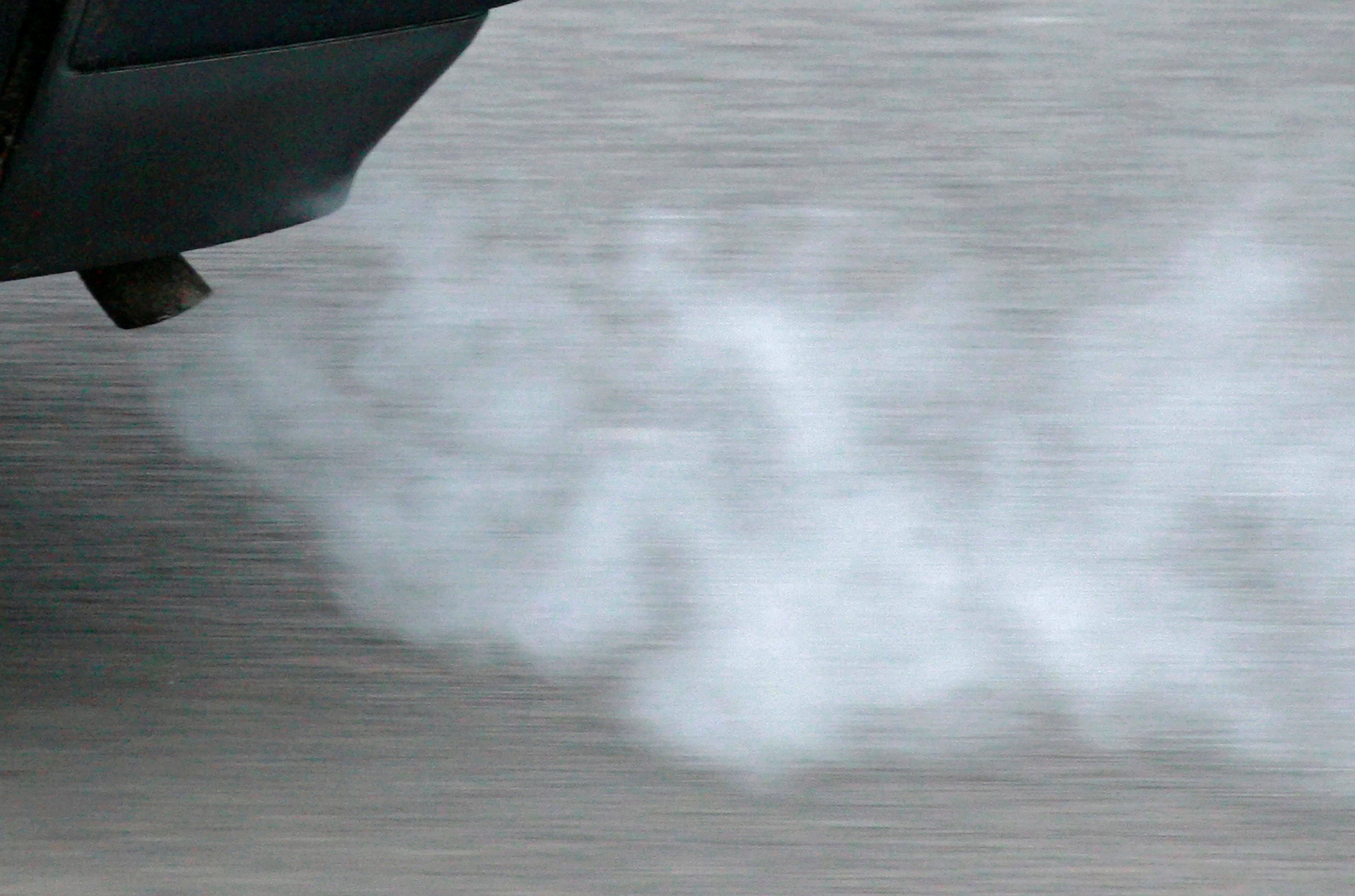Call for car control zones across UK to reduce air pollution deaths
Exclusive: Green Tory joins Labour’s Sadiq Khan and medical experts in plea to government

Ministers are facing a demand for London-style congestion and ultra-low-emission zones in towns and cities across the UK, in a bid to slash the 36,000 premature deaths caused by poor air quality each year.
Medical experts have joined forces with the capital’s Labour mayor Sadiq Khan and Conservative environmentalist Ben Goldsmith to issue an appeal to environment secretary Therese Coffey for action.
The letter came after Ms Coffey’s Department for Environment Food & Rural Affairs (Defra) missed a legally binding deadline of 31 October to set new targets for air and water quality, biodiversity and tackling waste.
Signatories representing Cancer Research UK, Asthma + Lung UK, Alzheimer’s Research and the British Heart Foundation joined Khan and Goldsmith in warning that the delay “puts the health and well-being of millions of people at risk”.
Mr Goldsmith’s position as a Tory donor and chair of the Conservative Environment Network, which counts dozens of MPs as members, will make it all the more difficult for Ms Coffey to ignore their appeal.
They warned of a “health emergency” in many parts of the UK due to “toxic” air pollution levels, which leave communities across the country breathing air at standards well below World Health Organisation guidelines.
And they said that schemes such as London’s congestion charge, introduced in 2003, and the ultra-low-emission zone (ULEZ), dating back to 2019, have been shown to be the most effective means of improving the air and should be “embraced” throughout the UK.
The £15 daily congestion charge is paid daily by all except electric and some hybrid vehicles in central London, while the ultra-low-emission zone (ULEZ) bars from a much larger area of the capital any diesel or petrol motors failing to meet modern standards.
Together they make the capital one of the largest controlled zones for vehicle emissions in the world and are more stringent than clean air and low-emission zones introduced in cities such as Manchester, Edinburgh and Bath.
“We are all aware of the growing pressures on the National Health Service and so it is ever more vital that where possible we look to tackle the causes of illnesses,” the letter said.
“The mounting evidence shows that air pollution is having a serious and significant impact on all of our health from the moment we’re born through to old age and therefore needs to be urgently addressed.
“Tolerating this health emergency should never be politically acceptable and we know that the most effective tools we have to hand are schemes like ultra-low-emission zones and road user charging. Policies like these should be embraced.”
Air pollution is known to reduce life expectancy by increasing the chances of cardiovascular disease and stunted lung growth in children. It causes thousands of cases of lung cancer in non-smokers each year.
And further evidence of harm is emerging, with a review of research finding last month that the risk of dementia could increase significantly with long-term exposure to fine particulate matter pollution.
“This deeply concerning report is the latest in a long line of research to show that toxic air is a likely contributor to one of the fastest rising health conditions facing the UK, with the numbers of those diagnosed with dementia set to increase to over 1.6 million by 2050 unless we take action to reduce risks,” wrote the letter’s signatories, including Samantha Benham-Hermetz of Alzheimer’s Research UK, Cancer Research UK chief clinician Prof Charles Swanton, the CEO of Asthma + Lung UK Sarah Woolnough and John Maingay, director of policy at the British Heart Foundation.
They told Ms Coffey: “With more ambition and with a willingness to tackle this issue head-on, we know that this can be different.
“We call on you to ensure that drastically reducing air pollution is seen as a priority for this government and that new, bold targets are set in law as quickly as possible. We wish to work closely with you to achieve this.”
A spokesperson for the Department of Environment, Food and Rural Affairs (Defra) said: “While air quality has improved significantly since 2010, we remain committed to continuing to drive improvements.
“We are not waiting for new targets to take action. We have already committed close to £900m to tackle air pollution and improve public health. We are working closely with local authorities to implement their air quality plans and we will bring forward the Environment Act targets as soon as possible."




Join our commenting forum
Join thought-provoking conversations, follow other Independent readers and see their replies
43Comments